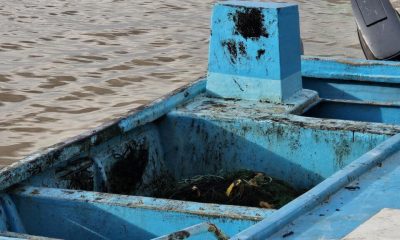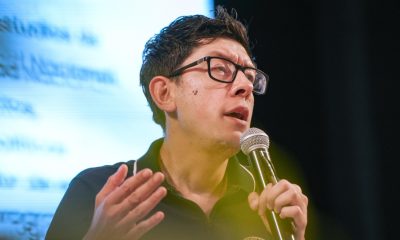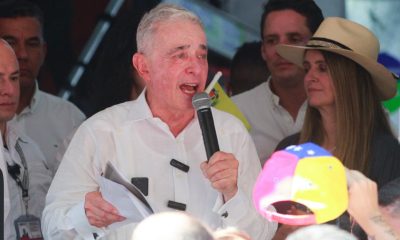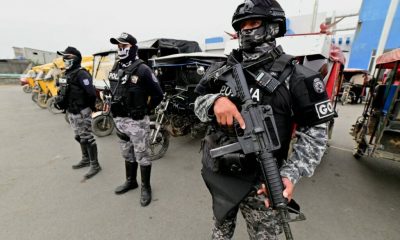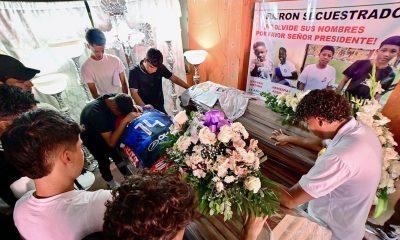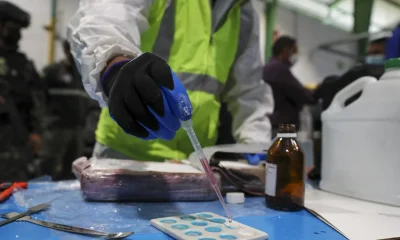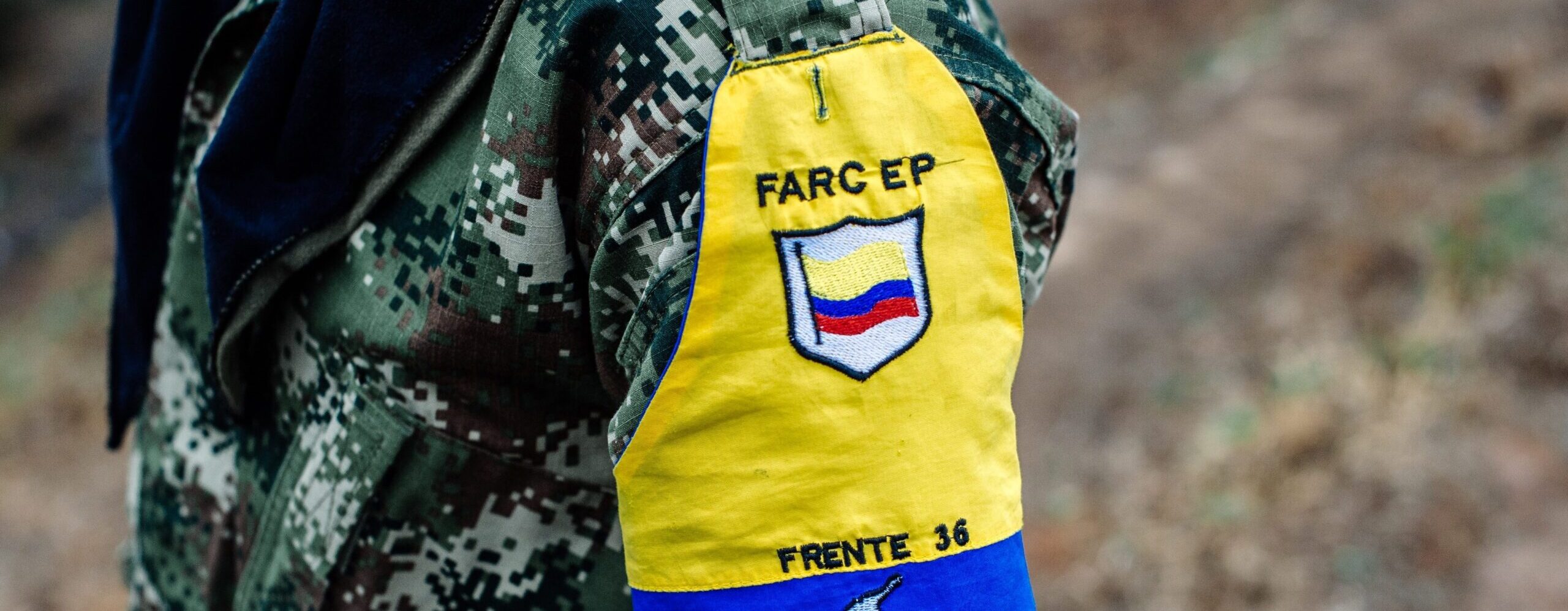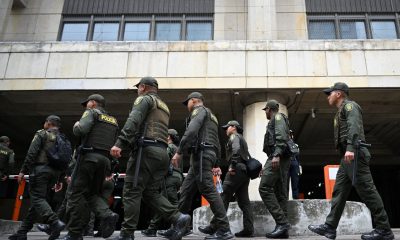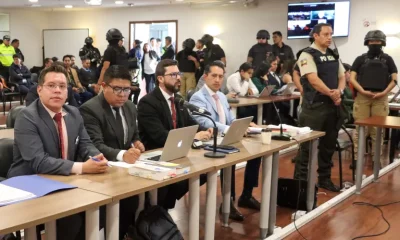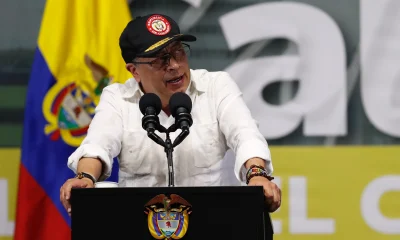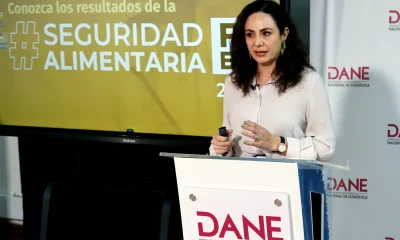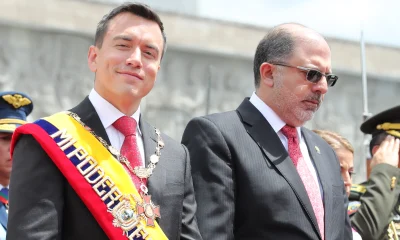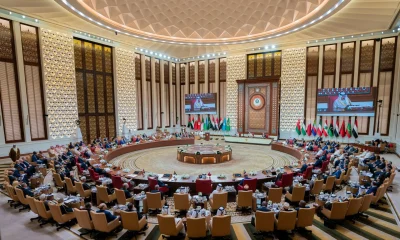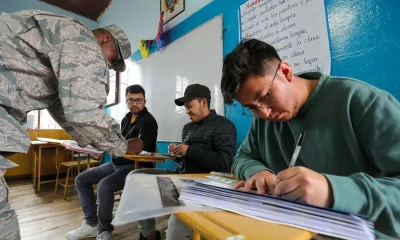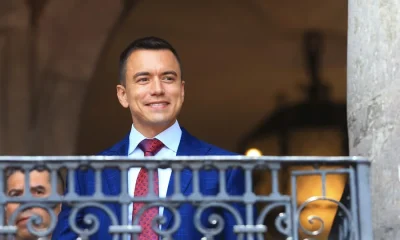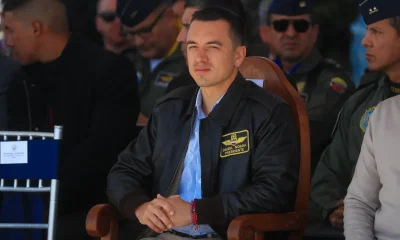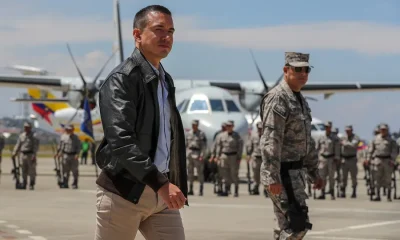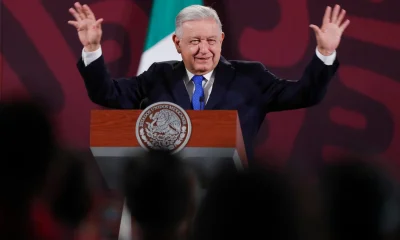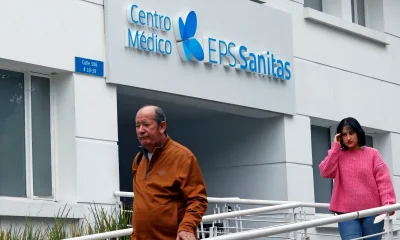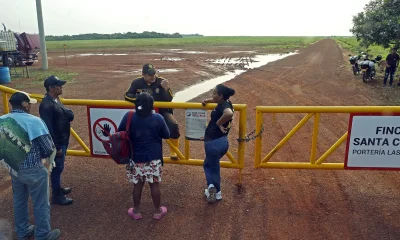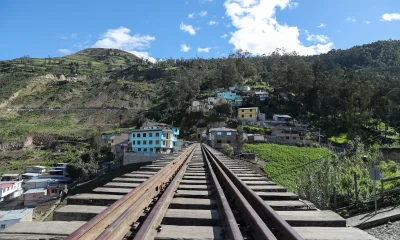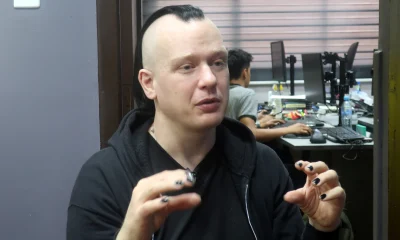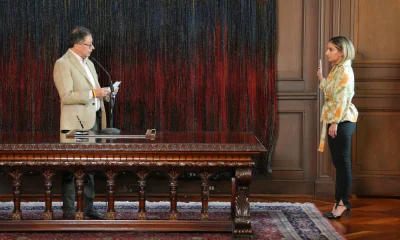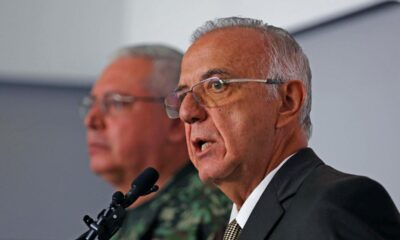International
Five dead in attack on Colombia-Ecuador border
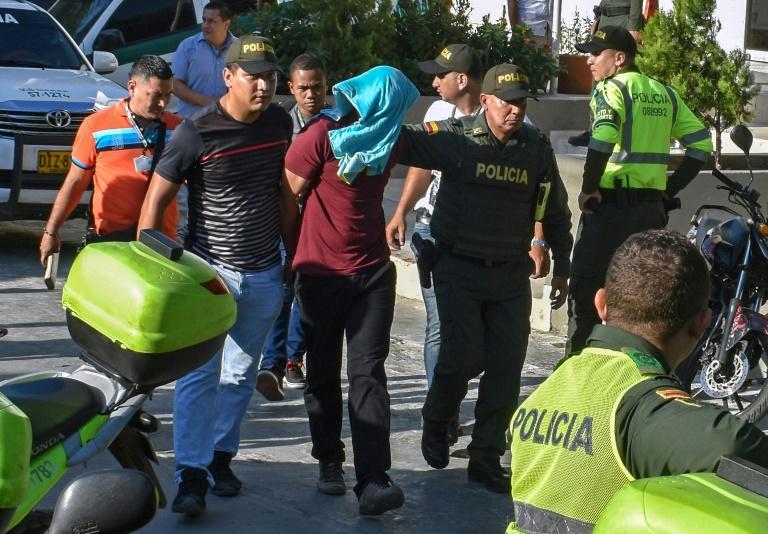
| By AFP |
Gunmen killed five people in southern Colombia on the border with Ecuador, authorities said on Wednesday,
Attackers on motorbikes opened fire indiscriminately at a group of eight people on Tuesday night, said Putumayo department police chief colonel Jorge Salinas.
Five people died at the scene and the other three, including two women, were injured, Salinas told a local radio station.
The scene of the crime was known to be frequented by drug addicts.
Police suspect a faction of dissidents of the Revolutionary Armed Forces of Colombia (FARC) rebels called the Border Commandos to be behind the attack.
Marxist guerrillas FARC signed a peace treaty with the government in December 2016 to end a half centry of conflict with the state and create a communist political party.
But some dissidents refused to lay down their arms and continue to carry out attacks on the armed forces and civilians, while mostly funding their campaign through drug trafficking.
The Border Commandos were involved in a clash with another group of FARC dissidents in Putumayo a month ago, in which at least 20 suspected fighters died.
Armed groups throughout the country are fighting over territory and the lucrative drug trafficking trade.
Colombia is the world’s largest producer of cocaine, much of which is shipped out of Ecuador to the United States — the number one market — and Europe.
Following the murders, Colombia President Gustavo Petro and his Ecuadoran counterpart Guillermo Lasso proposed joint operations along the 586-kilometer long border between the two countries in a Twitter exchange.
Petro said these operations would target the “mafias that use the border as a drug trafficking route.”
Lasso replied that he could “count on our active support.”
Petro, who is Colombia’s first leftist president, has vowed to negotiate with armed groups and drug traffickers in a bid to achieve a “total peace” in a country that has now suffered almost six decades of conflict.
Initial talks with these groups have not so far resulted in a reduction in violence, though.
According to the Indepaz NGO, there have been 93 massacres this year in Colombia, leaving scores of victims.
International
Paraguay summons Brazilian ambassador over Itaipú espionage scandal
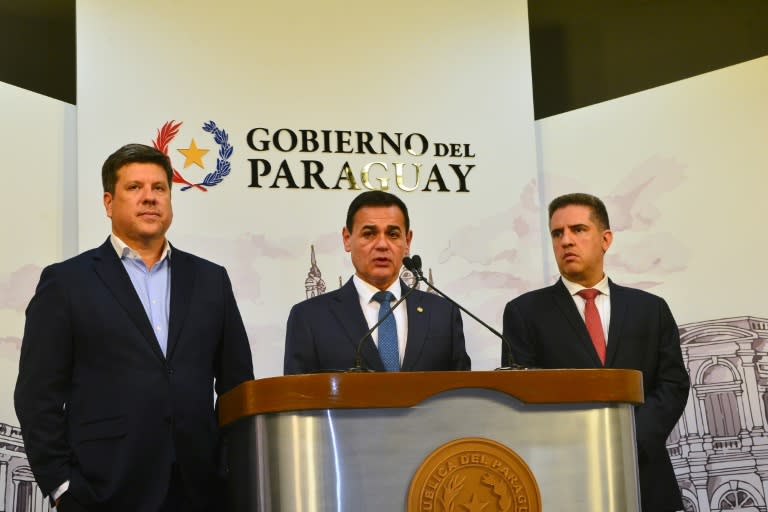
Paraguay summoned the Brazilian ambassador in Asunción on Tuesday to demand “explanations” and called its own representative in Brasília for consultations following Brazil’s acknowledgment of an espionage operation. The Brazilian government, led by President Luiz Inácio Lula da Silva, attributed the operation to the previous administration.
The surveillance effort aimed to uncover Paraguay’s position in now-suspended negotiations with Brazil regarding the pricing of electricity from the binational Itaipú hydroelectric plant, according to reports in the Brazilian press.
The Brazilian government “categorically denied any involvement in the intelligence operation,” stating in a Foreign Ministry communiqué on Monday that the espionage was carried out under former President Jair Bolsonaro’s administration (2019-2023).
“The operation was authorized by the previous government in June 2022 and was annulled by the interim director of the (state intelligence agency) ABIN on March 27, 2023, as soon as the current administration became aware of it,” Brazil’s government asserted.
Paraguay’s Foreign Minister Rubén Ramírez announced that Brazilian Ambassador José Antonio Marcondes de Carvalho was summoned “to provide detailed explanations” regarding the operation. Additionally, Paraguay recalled its diplomatic representative in Brasília “to report on aspects related to the intelligence activity conducted by Brazil regarding Paraguay’s government affairs.”
International
Elon Musk to step down as government advisor, per Trump insiders
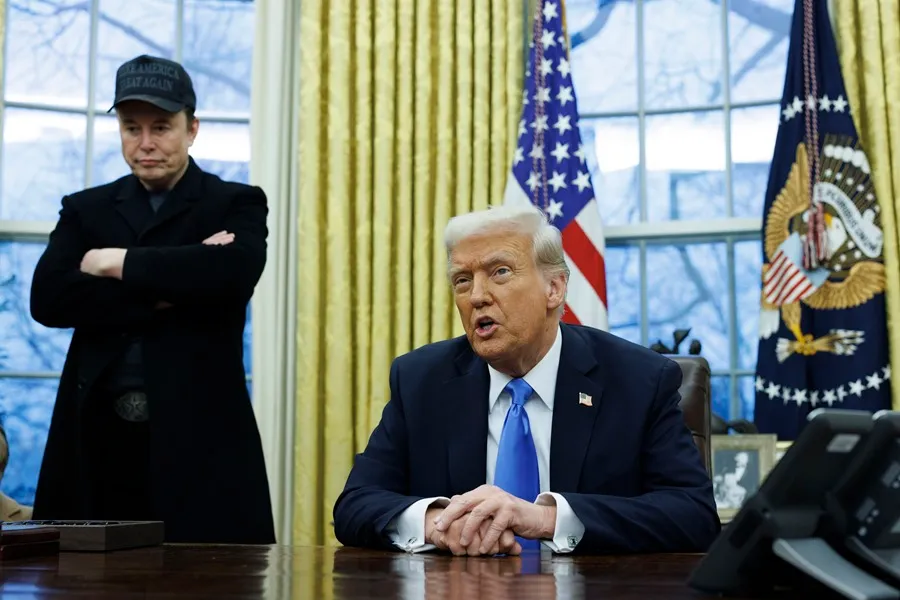
President Donald Trump has informed his inner circle that Elon Musk will be stepping down from his role as a government advisor, according to a report by Politico today.
Citing three individuals close to Trump, Politico states that the president is pleased with Musk’s leadership at the Department of Government Efficiency (DOGE), where he has implemented significant budget cuts. However, both have agreed that it is time for Musk to return to his businesses and support Trump from a different position outside the government.
A senior administration official told Politico that Musk will likely maintain an informal advisory role and continue to be an occasional visitor to the White House. Another source warned that anyone thinking Musk will completely disappear from Trump’s circle is “deluding themselves.”
According to the sources, this transition is expected to coincide with the end of Musk’s tenure as a “special government employee,” a temporary status that exempts him from certain ethics and conflict-of-interest regulations. This 130-day period is set to expire in late May or early June.
International
Milei vows to make Argentina so strong that Falkland Islanders “choose” to join

Argentine President Javier Milei reaffirmed his country’s claim over the Falkland Islands (known as the Islas Malvinas in Argentina) and praised the role of the nation’s armed forces during a ceremony marking the “Veterans and Fallen Soldiers of the Malvinas War Day,” commemorating 43 years since the 1982 conflict with the United Kingdom.
Argentina continues to assert sovereignty over the islands, arguing that Britain unlawfully seized them in 1833.
“If sovereignty over the Malvinas is the issue, we have always made it clear that the most important vote is the one cast with one’s feet. We hope that one day, the Malvinas residents will choose to vote with their feet and join us,” Milei stated.
“That is why we aim to become a global power—so much so that they would prefer to be Argentine, making deterrence or persuasion unnecessary. This is why we have embarked on a path of liberation, working to make Argentina the freest country in the world and once again the nation with the highest GDP per capita on the planet,” he added.
-

 Central America3 days ago
Central America3 days agoU.S. Homeland Security Secretary urges Mexico to strengthen Guatemala border
-

 International2 days ago
International2 days agoParaguay summons Brazilian ambassador over Itaipú espionage scandal
-

 Central America3 days ago
Central America3 days agoPanama grants Martinelli 72-hour extension to travel to Nicaragua
-

 Central America4 days ago
Central America4 days agoPanama police clarifies that Interpol alert for Martinelli is still pending
-

 International3 days ago
International3 days agoTrump urges Putin to reach peace deal
-

 International4 days ago
International4 days agoDeportation flight lands in Venezuela; government denies criminal gang links
-

 Sports2 days ago
Sports2 days agoFilipe Luis debuts as coach in Copa Libertadores with Flamengo
-

 Central America2 days ago
Central America2 days agoGuatemalan police officer killed in mob riots over baby kidnapping
-

 International2 days ago
International2 days agoElon Musk to step down as government advisor, per Trump insiders
-

 Sports2 days ago
Sports2 days agoVenezuela investigates 18 baseball players seeking asylum in Spain
-

 International2 days ago
International2 days agoMilei vows to make Argentina so strong that Falkland Islanders “choose” to join
-

 International2 days ago
International2 days agoICE agent’s arrest of suspect sparks controversy in Boston
-

 International2 days ago
International2 days agoÓscar Arias: Trump’s trade policies are a step backward














